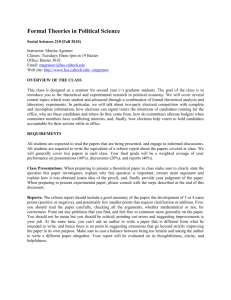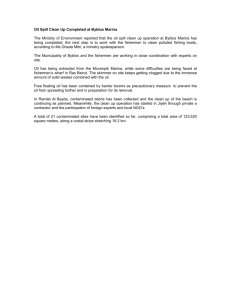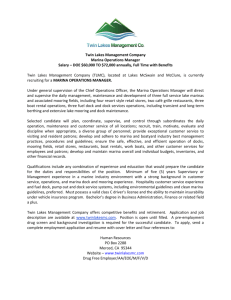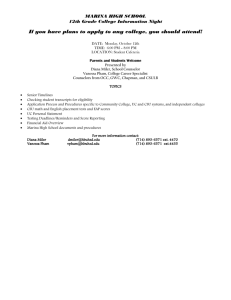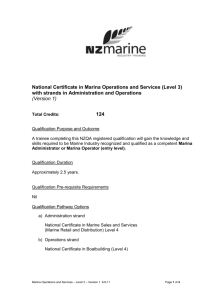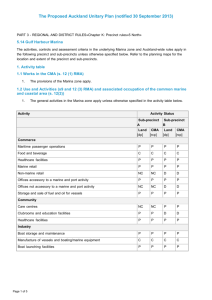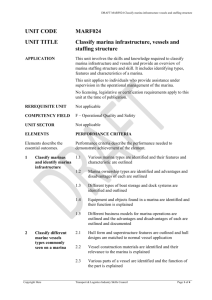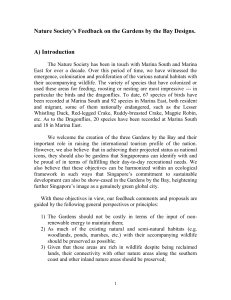Marina Caillaud
advertisement
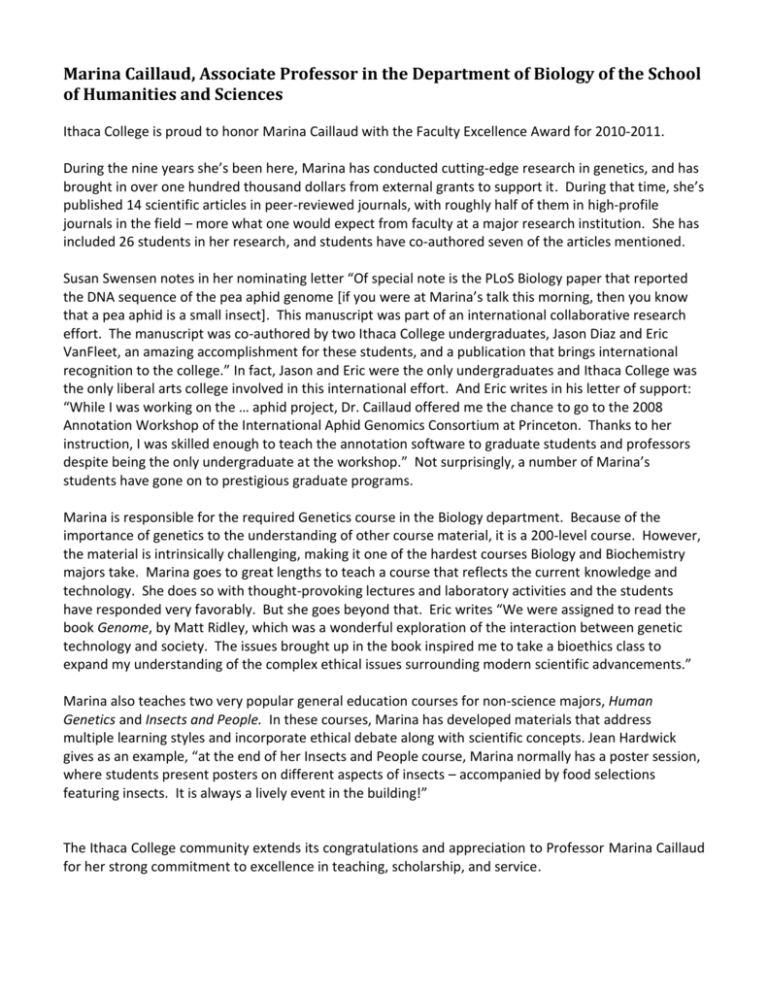
Marina Caillaud, Associate Professor in the Department of Biology of the School of Humanities and Sciences Ithaca College is proud to honor Marina Caillaud with the Faculty Excellence Award for 2010-2011. During the nine years she’s been here, Marina has conducted cutting-edge research in genetics, and has brought in over one hundred thousand dollars from external grants to support it. During that time, she’s published 14 scientific articles in peer-reviewed journals, with roughly half of them in high-profile journals in the field – more what one would expect from faculty at a major research institution. She has included 26 students in her research, and students have co-authored seven of the articles mentioned. Susan Swensen notes in her nominating letter “Of special note is the PLoS Biology paper that reported the DNA sequence of the pea aphid genome [if you were at Marina’s talk this morning, then you know that a pea aphid is a small insect]. This manuscript was part of an international collaborative research effort. The manuscript was co-authored by two Ithaca College undergraduates, Jason Diaz and Eric VanFleet, an amazing accomplishment for these students, and a publication that brings international recognition to the college.” In fact, Jason and Eric were the only undergraduates and Ithaca College was the only liberal arts college involved in this international effort. And Eric writes in his letter of support: “While I was working on the … aphid project, Dr. Caillaud offered me the chance to go to the 2008 Annotation Workshop of the International Aphid Genomics Consortium at Princeton. Thanks to her instruction, I was skilled enough to teach the annotation software to graduate students and professors despite being the only undergraduate at the workshop.” Not surprisingly, a number of Marina’s students have gone on to prestigious graduate programs. Marina is responsible for the required Genetics course in the Biology department. Because of the importance of genetics to the understanding of other course material, it is a 200-level course. However, the material is intrinsically challenging, making it one of the hardest courses Biology and Biochemistry majors take. Marina goes to great lengths to teach a course that reflects the current knowledge and technology. She does so with thought-provoking lectures and laboratory activities and the students have responded very favorably. But she goes beyond that. Eric writes “We were assigned to read the book Genome, by Matt Ridley, which was a wonderful exploration of the interaction between genetic technology and society. The issues brought up in the book inspired me to take a bioethics class to expand my understanding of the complex ethical issues surrounding modern scientific advancements.” Marina also teaches two very popular general education courses for non-science majors, Human Genetics and Insects and People. In these courses, Marina has developed materials that address multiple learning styles and incorporate ethical debate along with scientific concepts. Jean Hardwick gives as an example, “at the end of her Insects and People course, Marina normally has a poster session, where students present posters on different aspects of insects – accompanied by food selections featuring insects. It is always a lively event in the building!” The Ithaca College community extends its congratulations and appreciation to Professor Marina Caillaud for her strong commitment to excellence in teaching, scholarship, and service.

